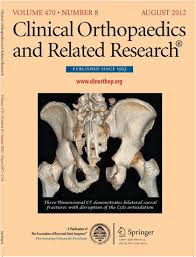
No difference in function or long-term survival with robotic-assisted versus conventional TKA
Clinical orthopaedics and related research.2020;478(2):266-275.Robotic-assisted Total Knee Arthroplasty (TKA) has gained recent prominence with improved technology and wider availability. To date, the literature has demonstrated the ability of robotic-assisted surgeries to produce more accurate alignment, but the implications of this difference in terms of function or implant survival has not been clarified. Most studies to date have been relatively small and short-term in nature. In this study, the authors present a large randomized controlled trials, with sound methodology and long-term follow-up (10 years). Overall, they found no significant differences in terms of any radiographic, functional, or survival outcomes with excellent results in both groups. Operative time and tourniquet time were significantly longer in the robotic-assisted group.
Unlock the full ACE Report
You have access to {0} free articles per month.Click below to unlock and view this {1}
Unlock NowCritical appraisals of the latest, high-impact randomized controlled trials and systematic reviews in orthopaedics
Access to OrthoEvidence podcast content, including collaborations with the Journal of Bone and Joint Surgery, interviews with internationally recognized surgeons, and roundtable discussions on orthopaedic news and topics
Subscription to The Pulse, a twice-weekly evidence-based newsletter designed to help you make better clinical decisions
Exclusive access to original content articles, including in-house systematic reviews, and articles on health research methods and hot orthopaedic topics
Or upgrade today and gain access to all OrthoEvidence content for just $1.99 per week.
Already have an account? Log in


Subscribe to "The Pulse"
Evidence-Based Orthopaedics direct to your inbox.
{0} of {1} free articles
Become an OrthoEvidence Premium Member. Expand your perspective with high-quality evidence.
Upgrade Now












































































